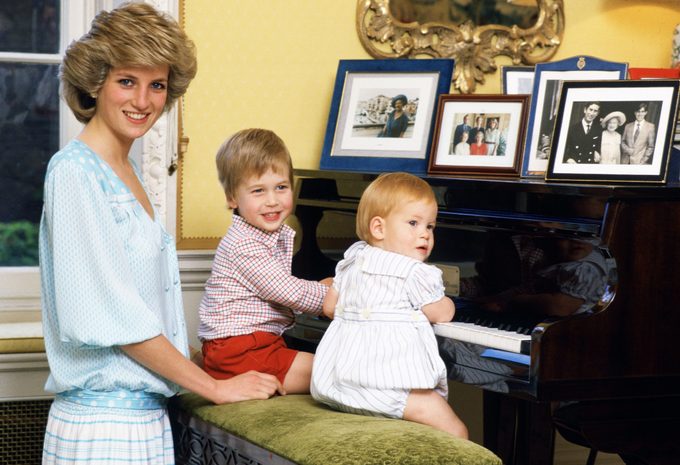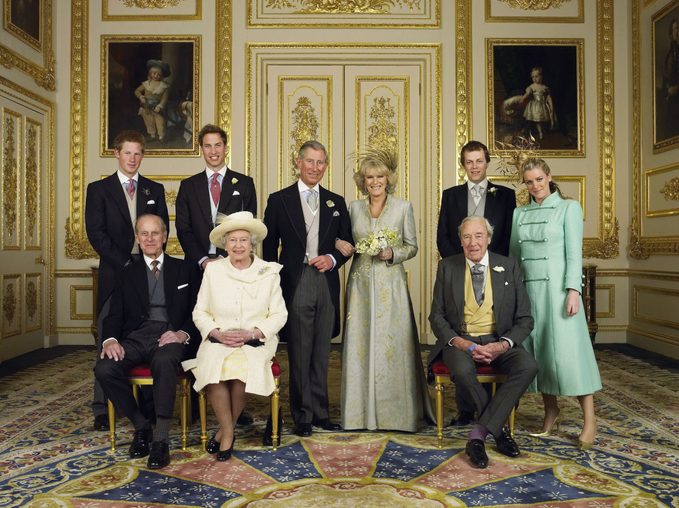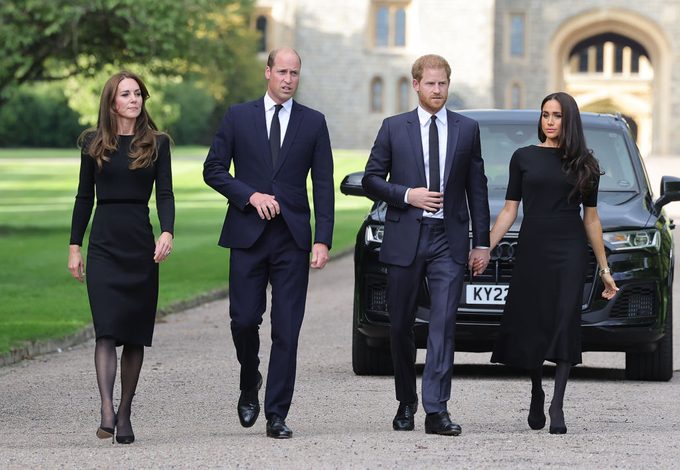A Trusted Friend in a Complicated World
RD.COM Arts & Entertainment Books
Every editorial product is independently selected, though we may be compensated or receive an affiliate commission if you buy something through our links. Ratings and prices are accurate and items are in stock as of time of publication.
I wasn’t even a third of the way into Spare, the new bombshell memoir written by Prince Harry, when I found myself with a frustrating recurring thought: He’s just an average bloke.
We all know there’s something magical about following the stories of royalty—especially one with such deep history as the House of Windsor. Even I find myself having a hard time not being fascinated by all the little details—like the cake flavor Harry and Meghan chose for the wedding (how dare they not serve fruitcake!), or the true reason behind Queen Elizabeth II’s purse collection.
But, as I journeyed through Prince Harry’s memoir Spare, I can’t help but marvel at the normalcy of his life. How he secretly played countless hours of Halo as a teen, how his “stag” party before his wedding involved giant boxing gloves, how his father—now the King of England—showed Harry a surprising amount of tenderness, frequently calling him “darling boy.” Our world has made such a spectacle of the royal family yet has failed to humanize their existence. No one considered how someone like Prince Harry would really feel about being labeled “the naughty one” when his teenage life sounded so abhorrently normal compared to the rest of us—despite the elite schooling and the rigorous attire, or how he felt with cameras constantly flashing in his face from the relentless “paps” he was always trying to get away from.
It’s one one of his lines, when he was forced to act in Shakespeare’s Much Ado About Nothing as a requirement to graduate from Eton, that Prince Harry writes what I found to be one of the most profound truths that the world seems to forget: “Being royal, it turned out, wasn’t all that far from being onstage. Acting was acting, no matter the context.”
So while there are certainly some jaw-dropping factoids revealed in his new book—drugs! That costume party! His frozen todger!—it was the little facts in between that had us shocked regarding Prince Harry’s life so far—and how often this royal clawed desperately at trying to have a normal life.
The memoir starts on that dreadful day—the day of the passing of Diana, Princess of Wales. Harry was with his brother and father at Balmoral for a summer holiday, and it was his father who woke him up and told him the news.
As a young boy, Harry couldn’t believe that his mother could just be gone. And for the longest time, as he explains throughout his memoir, he thought she disappeared. Escaped from the press. Decided to rid of it all. It wasn’t until he told his driver to ride through Pont de l’Alma in Paris, the tunnel where Diana fatefully died in a crash, that the truth really truly hit him.
In the early days of his mother’s passing, Harry details how he didn’t cry when he first heard the news. The only time tears streaked his face was at her burial where he wept bitter, mournful, sobbing tears.
But then, he didn’t again. Not until 2014 when his then-girlfriend Cressida Bonas asked about her did he finally cry. In the many years following, crying wasn’t something that Harry was used to, and wasn’t able to do it freely until hopping back into therapy at the start of his relationship with Meghan Markle.
After meeting Camilla officially, both princes told their father they were OK with having Camilla in their lives because they wanted him to be happy. They came to him with one simple request: Just please don’t marry her. Just be together, Pa.
He did eventually marry her, in a small civil union in Windsor Guildhall in April 2005.
While I expected a majority of this memoir to be about his romance with Meghan Markle and the shocking news that they left the monarchy, I was surprised to learn that a third of the book was dedicated to his war days. So many particular details about training and battles, and his burning desire to get back on the battlefield—one of the only places he truly felt “normal” and not constantly bombarded by the press.
Like so many who come home from battle, Harry suffered from PTSD and bouts of anxiety and depression. After finally going to therapy (which was originally encouraged by “Willy,” who was worried about him), as part of his healing process, Harry admits to using psychedelics as a type of medicinal therapy, as a way to see the good in the world.
“They didn’t simply allow me to escape reality for a while, they let me redefine my reality,” he wrote. “Under the influence of these substances, I was able to let go of rigid pre-concepts, to see that there was another world that was equally real and doubly beautiful.”
Maybe because of the constant headlines we’ve seen over the years or the way King Charles is portrayed in the popular TV show The Crown, it’s always been assumed that this man was not a great father. And yet, throughout Harry’s memoir, a different tale is told—of a father that is surprisingly tender and kind to his son, who is patient and willing to listen, who constantly calls him his “darling son” and who actually cares about what is going on in his life. His gentleness and love for Meghan are especially sweet and watching him walk her down the aisle was even more inspiring to rewatch.
While a few not-so-true stories were released about Meghan and her fiasco involving the tiara she would wear on her wedding day, Harry clears the air with the true story behind it all.
Yes, Meghan was meant to wear Princess Diana’s tiara on the day of her wedding. But the Queen then invited her to her private collection, and after trying on the one she eventually wore, the Queen said, “Tiaras suit you.” Meghan and Harry were touched by that special moment with his Granny, but of course, the press evidently ruined it with a false story about how it all went down.
Prince Harry laid out some of the details of having to live within the financial control of his father, given he was the one who controlled the funds for their family. Later in the book, after Harry and Meghan married, Harry makes a comment about the type of furniture that the two used to furnish their cottage as he compared his IKEA lamps and discount sofa (bought through Meghan’s personal credit card) to the lavish home of his brother.
There’s no denying the amount of revolting fake and horrific stories that were published about Meghan, particularly about her nature as an employer. Journalists told stories of how she was nasty to her staffers and treated them poorly, while Harry’s memoir paints the complete opposite picture.
It seems, in the telling of this particular moment in time, that Prince William also came to believe some of the lies swirling around about Meghan. One particular evening he laid it all out to Prince Harry, calling Meg difficult and rude and abrasive. This particular interaction became quite the fight, mostly on Prince William’s side, who grabbed the neck of Harry’s shirt as it ripped and knocked him to the ground.
It felt like the entire underlying story behind this memoir was Harry’s war against the press. But it always felt like a one-sided war—the press constantly writing salacious, untrue stories about Harry and soon his wife, while Harry was told to sit down and do nothing.
What’s particularly interesting about this narrative is how his family members strived for good press, even finding themselves jealous when Harry was getting too much of it. Many times negative stories would release about the “Fab Four”—Prince William, Kate Middleton, Harry and Meghan—as a way to give good press to King Charles and the Queen Consort, even though they denied having any part in it.
Instead of trying to fight the onslaught of negative and false media, the memoir made it clear that the royal family was also to blame for planting particular stories—as a way to control the story instead of stopping it, to make one member sound better than the other. But Harry never once admits to trying to do the same and was always one to fight against the media’s hidden royal agenda. Just like his mum.
The press always made it seem that it was either the royal family’s fault, or it was Harry and Meghan’s fault when they ultimately decided to leave the monarchy. But according to “Spare,” it was neither.
“My problem has never been with the monarchy, not the concept of monarchy,” he wrote. “It’s been with the press and the sick relationship that’s evolved between it and the Palace. I love my Mother Country, and I love my family, and I always will. I just wish, at the second-darkest moment of my life, they’d both been there for me.”
The underlying theme of his memoir was how toxic the press is when it comes to the well-being of the monarchy, and how their mental health is constantly threatened with headlines that are meant to simply sell papers and make money. Yet the lies that seep into the nation start to take dark holds on the hearts of those who once loved the spiky-haired prince, making him and his wife seem like villains. It’s so abhorrently sad. And after finishing his memoir, I am grateful I had the chance to hear his side of the story.
Our Brands
We are no longer supporting IE (Internet Explorer) as we strive to provide site experiences for browsers that support new web standards and security practices.
We recommend our users to update the browser.



